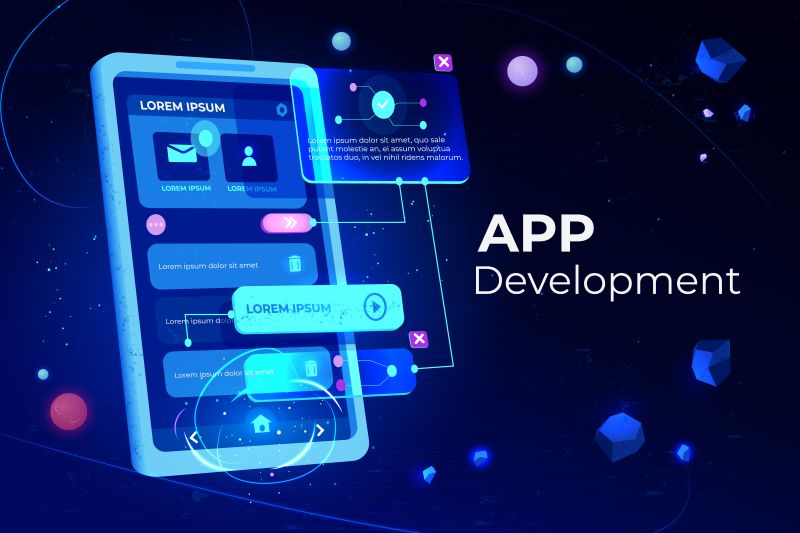In today’s competitive app market, choosing the right development approach can be the difference between an app’s success and obscurity. Two popular paths stand out: iOS-only app development and cross-platform app development. While both have their strengths, deciding which one suits your business goals requires careful thought.
In this guide, we’ll help you understand when it’s best to focus solely on iOS and when a cross-platform app development company might be the better choice.
Understanding the Two Approaches
Before diving into the decision-making process, let’s quickly define both methods.
-
iOS App Development – This involves building an app exclusively for Apple’s ecosystem using tools like Swift, Xcode, and UIKit. An experienced iOS app development agency can help businesses create apps optimized for iPhones, iPads, and Apple Watches.
-
Cross-Platform App Development – This approach uses frameworks like Flutter, React Native, or Xamarin to create apps that run on multiple platforms (iOS, Android, and sometimes the web) with a single codebase. A cross-platform app development company can help businesses save time and resources while reaching a wider audience.
When to Choose iOS-Only App Development
1. Targeting a Premium, High-Spending Audience
If your target market is primarily iPhone and iPad users, going iOS-only can make sense. Apple users tend to spend more on apps and in-app purchases, making it a profitable segment.
2. Leveraging Exclusive Apple Features
Certain features like Face ID, ARKit, HealthKit, and advanced camera functionalities work best with native iOS development. If your app heavily depends on these, working with an iOS app development agency is the right move.
3. Speed to Market for Apple Users
If you’re testing a new idea and want to launch quickly to iOS users first, focusing on one platform can reduce development time and complexity.
4. High Security and Performance Requirements
Apple’s ecosystem is known for strong security protocols and performance standards. For apps dealing with sensitive data—like banking or healthcare—iOS-only development can provide additional peace of mind.
When to Choose Cross-Platform App Development
1. Reaching Both iOS and Android Users Simultaneously
If your app needs to reach a large, diverse audience, cross-platform app development ensures you cover both major markets from day one.
2. Budget-Friendly Development
Instead of building two separate apps, you can develop a single codebase and deploy it across platforms—saving on development and maintenance costs. A cross-platform app development company can maximize your ROI by minimizing duplication of effort.
3. Consistent User Experience Across Platforms
Cross-platform frameworks allow developers to maintain a similar look, feel, and functionality on different devices, creating a cohesive brand presence.
4. Faster Development and Updates
Updates, bug fixes, and feature additions can be rolled out to all platforms at once, reducing operational overhead.
Hybrid Strategy: Starting iOS-Only, Then Expanding
Many startups choose to start with iOS to test their idea with a smaller, high-value user base, then expand to Android using a cross-platform framework later. This staged approach can help manage costs while validating the business model.
For example, you could partner with an iOS app development agency to build the initial version, then hire a cross-platform app development company to scale it to other platforms once you have traction.
Key Factors to Consider Before Choosing
Before committing to iOS-only or cross-platform app development, it’s crucial to evaluate several factors to ensure your choice aligns with your business objectives. Start with your target audience — if your customer base is predominantly iPhone and iPad users, an iOS-only app may deliver the best user experience and performance. Next, assess your budget and timeline; cross-platform solutions can often save time and development costs, but they may have limitations in accessing certain native features. Consider feature complexity as well; apps requiring advanced AR, heavy animations, or deep integration with iOS hardware often perform better when built natively. Long-term maintenance is another factor — will your app need frequent updates, or do you plan to expand to other platforms later? Finally, evaluate your monetization model; for example, premium and subscription-based apps tend to perform strongly on the Apple App Store, while broader reach through cross-platform development may benefit ad-driven or mass-market apps.
Final Thoughts
The decision between iOS-only and cross-platform app development is not a one-size-fits-all answer. If your goal is to target a premium audience, leverage Apple-specific features, and ensure top-tier performance, iOS-only development is the way to go. However, if you want maximum reach, cost-efficiency, and faster updates, working with a cross-platform app development company is the smarter choice.
For many businesses, the winning strategy lies in blending both—starting with iOS to establish a strong market presence, then expanding cross-platform to capture a broader audience.
Whether you partner with an iOS app development agency or a cross-platform app development company, make sure your choice aligns with your business goals, budget, and target market. The right approach will ensure your app not only launches successfully but also thrives in a competitive digital world.


